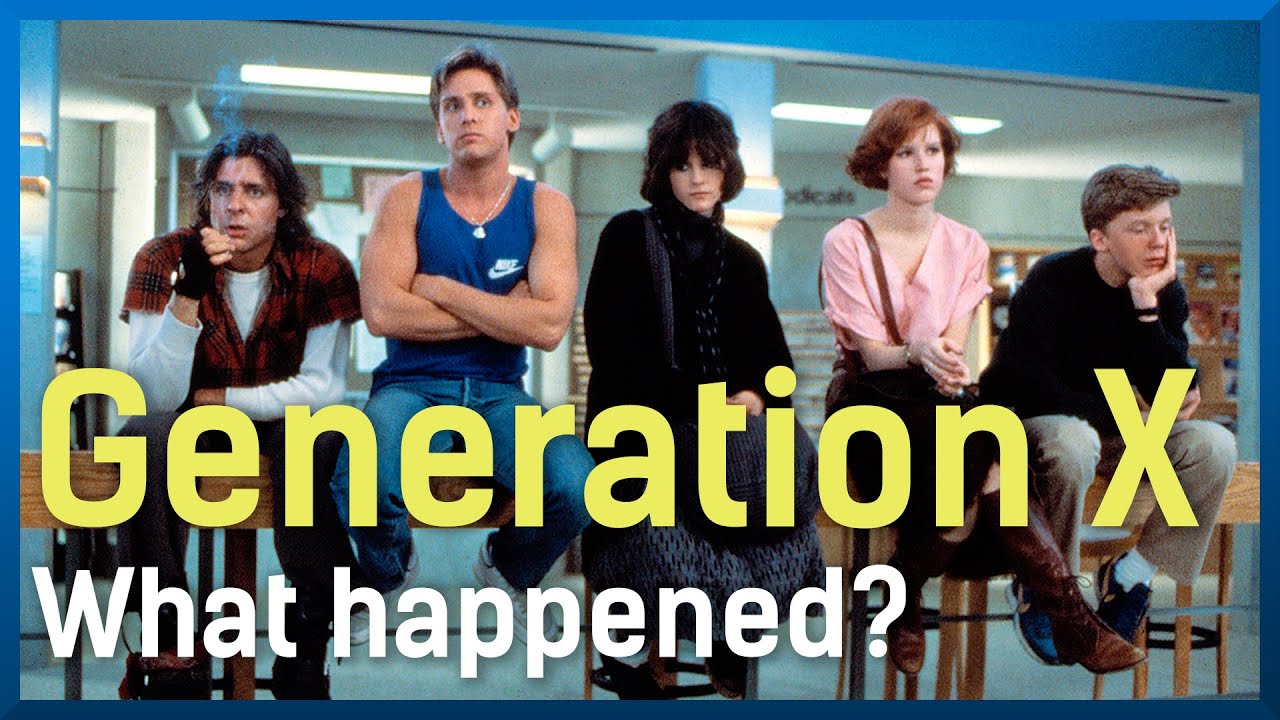
For many in Generation X, the years when their creativity thrived now seem like a distant memory. The digital revolution, which once appeared to be a blessing, has left many workers in creative fields facing the harsh reality of obsolescence. Despite their hard-earned experience, seasoned professionals in journalism, design, photography, advertising, and other creative industries are finding their once-valuable skills increasingly irrelevant. What was once a promising career trajectory now seems like a fragile memory of a different time.

The Fall of a Generation’s Creative Empire
When Douglas Coupland published his groundbreaking novel Generation X in 1991, it captured the essence of a generation. The young adults in the book reconciled themselves with “lessness,” a concept of diminishing material wealth and gradually adjusting to a world where expectations were tempered by economic realities. This notion of “lessness” has found a painful resonance among many in Generation X as they hit middle age, realizing that their once-vibrant careers in creative fields have been overshadowed by rapid technological advances.
For those who entered industries like magazine publishing, film, photography, or graphic design in the ’90s, the world seemed ripe for the taking. But, as many Gen X-ers now attest, the digital age has eroded much of the value placed on traditional skills. Instead of enjoying the rewards of a lifelong craft, these professionals are often left wondering what happened.
“I am having conversations every day with people whose careers are sort of over,” said Chris Wilcha, a 53-year-old film and TV director in Los Angeles. “The skills you cultivated, the craft you honed — it’s just gone. It’s startling.” This sentiment echoes through many Gen X-ers who entered creative careers, only to see their industries radically transformed or shrunk, often leaving them on the outside looking in.
Navigating the Shifting Landscape
In the world of advertising, for example, Karen McKinley, a 55-year-old executive, has witnessed a profound shift. Agencies once celebrated for their elaborate photo shoots and large-scale creative projects now lean toward cheaper, faster alternatives, often relying on influencers rather than seasoned professionals. “Twenty years ago, you would actually have a shoot,” McKinley explained. “Now, you may use influencers who have no advertising background.” The impact is stark for those whose livelihoods were once tied to the meticulous art of crafting ads and campaigns.
But it’s not just the shifting demands of social media or influencer culture that threaten Gen X workers in creative fields—there’s also the looming presence of artificial intelligence. AI, often seen as a force for good in automation, poses a direct threat to jobs in creative industries. “By 2030, ad agencies in the United States will lose 32,000 jobs, or 7.5 percent of the industry’s workforce, to the technology,” according to research from Forrester.

McKinley, ever the entrepreneur, co-founded Geezer Creative, an ad agency designed to provide a refuge for Gen X creatives. The agency has seen a surge in interest from individuals over 50 who are “terrified” about their diminishing job prospects, according to McKinley. This growing insecurity underscores the anxiety many creatives are feeling as the creative industry continues to evolve at a breakneck pace.
A Changing Economic Landscape
This career disruption is not merely an issue of job losses—it’s also a matter of timing. For Gen X-ers, the combination of rising living costs, mortgages, children’s college tuition, and elder care has created an economically precarious situation. Unlike the Baby Boomers, who are often financially secure in their later years, Gen X faces a future filled with uncertainty and a lack of sufficient retirement savings. Many feel they are caught between the traditional work environment and the rapidly changing economy that has rendered their previous skills and experiences irrelevant.
The once-thriving media industry offers a clear example. Steve Kandell, a former editor at Spin, recalls the magazine’s swift decline as the internet took hold. “We were in the death throes, whether we knew it or not,” Kandell said. This pattern of media outlets collapsing in the face of the internet revolution is common among those who grew up in the last gasp of print media. With print publications folding or shrinking, those who built careers in this world found themselves at the mercy of a rapidly changing market.
The Economic and Emotional Toll
For many Gen X creatives, the changes have not just been professional—they’ve been deeply emotional. Losing a job or seeing a career dismantled can be a traumatic experience, especially for those who poured their hearts into their work. As advertising and media industries embrace the new reality of cost-cutting and digital content creation, many workers in their 40s and 50s feel disillusioned. In an industry that once valued experience and expertise, the sudden shift toward cheaper, faster solutions has left many feeling obsolete.
For some, the solution has been to reinvent themselves in other fields. Liza Demby, a former marketing manager at Nickelodeon, found herself laid off in her 40s after years of navigating industry changes and multiple rounds of layoffs. “My job never stayed the same,” Demby said, reflecting on the challenges of adapting to a constantly evolving industry. Now working as a freelancer, Demby is still searching for a new career path that offers the stability and fulfillment she once enjoyed.
Others, like photographer Carl Chisolm, have had to diversify their skill sets just to stay afloat. “There’s no way you can survive anymore being strong at one thing,” Chisolm said, acknowledging that the days of working as a specialist in one field are long gone.

What Now? The Future for Gen X Creatives
As opportunities become scarcer and incomes dwindle, the question facing many Gen X-ers is: What now? Should they continue to pursue their passion in a shrinking field, or pivot to a safer, more stable career path? For some, like Chris Wilcha, the answer is to return to their roots, re-engaging with the creative work that originally inspired them. Wilcha’s documentary Flipside reflects this shift, as he once again embraces the “indie rock” mentality that defined his early career. “It confirmed my belief that continuing to make stuff is the path forward,” Wilcha said.
For others, like Chris Gentile, the shift has been more drastic. Gentile left his creative director role at Condé Nast and shifted gears, opening a surf shop that has since evolved into a clothing brand. “I was prepared to struggle,” he said, reflecting the mindset of a generation that never expected easy answers or guaranteed success.
As the Gen X generation continues to grapple with a changing job market, many are left to navigate the uncharted waters of a world where their expertise no longer holds the same value. But despite the uncertainty, many remain optimistic that reinvention and adaptation are the keys to survival in this new reality.
